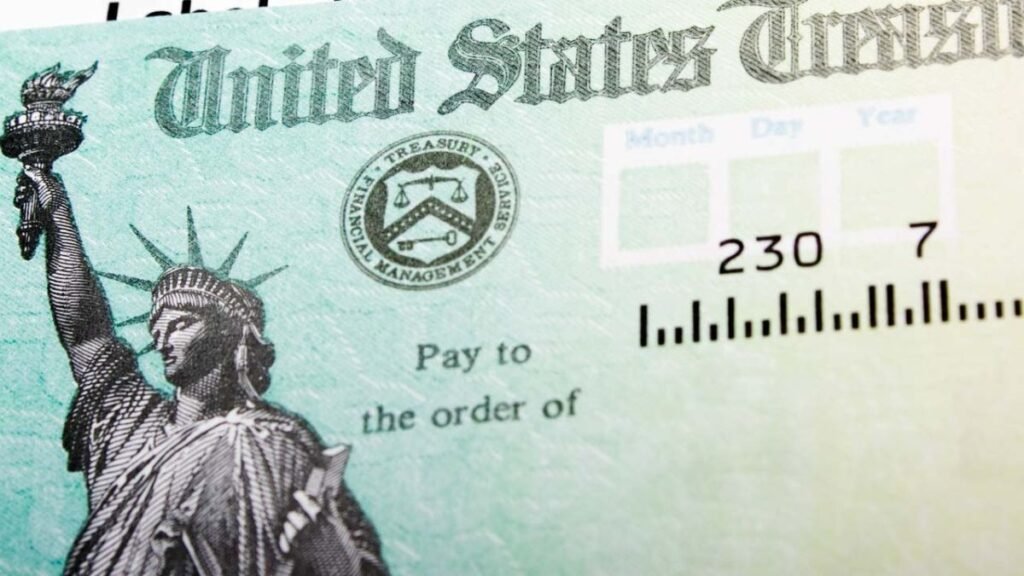As the cost of living continues to rise, many seniors in the United States are finding it harder to keep up with everyday expenses. Groceries, rent, utilities, and healthcare costs have all increased in recent years, placing a heavy burden on those who rely on fixed incomes. Fortunately, there are several financial assistance programs available that could provide seniors with monthly payments of up to $1,200. These help checks can make a significant difference in maintaining a comfortable and dignified lifestyle. If you or someone you know is a senior who could benefit from extra financial support, keep reading to learn how these programs work, who qualifies, and how to apply.
Understanding Monthly Help Checks for Seniors
The idea of receiving monthly financial support is not new, but the growing economic pressure has made it more urgent than ever. From federal assistance programs to state-sponsored income initiatives, there are many opportunities for seniors to receive additional income. The key lies in understanding what options are available, how they work, and most importantly, how to qualify.
1. Supplemental Security Income (SSI)

Supplemental Security Income (SSI) is one of the most vital support programs for seniors who are struggling financially. Unlike Social Security retirement benefits, which are based on your work history, SSI is designed for seniors, blind individuals, or those with disabilities who have very limited income and assets.
Who is eligible for SSI?
- Age 65 or older, or blind or disabled at any age
- U.S. citizen or qualified non-citizen
- Limited monthly income (under $1,200 for individuals or $1,750 for couples in 2025)
- Limited resources (less than $2,000 in assets for individuals and $3,000 for couples)
How much can you receive?
- In 2025, the maximum monthly federal benefit is $967 for individuals and $1,451 for couples
- Some states offer additional payments, so actual amounts may vary
How to apply:
- Visit www.ssa.gov or call the Social Security Administration at 1-800-772-1213
- Applications can also be made in person at your local SSA office
Example: Martha, a 70-year-old widow living in Florida, has no income except a small pension. After applying for SSI, she now receives a monthly payment that helps her cover rent and utilities.
2. Social Security Retirement Benefits
For many seniors, Social Security retirement benefits are the cornerstone of their monthly income. These benefits are earned based on a person’s work history and contributions to the Social Security system over the years.
Eligibility requirements:
- Must be at least 62 years old (though benefits increase if you wait until your full retirement age of 66-67)
- Must have worked and earned at least 40 work credits (equivalent to about 10 years of work)
Payment amount:
- Varies based on lifetime earnings
- The average payment in 2025 is about $1,800 per month
- Payments can range from $1,200 to more than $4,000 per month for high earners
How to apply:
- Apply online at www.ssa.gov
- Call the SSA or visit your local SSA office for assistance
Example: Joe, a retired teacher from Ohio, delayed claiming his benefits until age 67. Now, he receives $2,400 each month, which covers his living costs and allows for a bit of savings.
3. Guaranteed Income Programs

In recent years, several cities and states have launched guaranteed income pilot programs that offer direct cash payments to residents, including seniors. These programs aim to help individuals meet basic needs and improve financial stability.
Eligibility varies by program, but typically includes:
- Low-income residents or those earning below the area median income
- Must live in the city or county offering the program
Monthly payments:
- Generally range from $500 to $1,200
- Payments are often made for a fixed period (e.g., 12 to 24 months)
Examples:
- Stockton, California: Provided $500 monthly for 18 months to 125 residents through the SEED program
- Franklin County, Ohio: Offers $500/month for 24 months as part of the Economic Mobility Accelerator
How to apply:
- Check with local government websites or nonprofit partners running the program
- Application periods are limited and selection is often based on need
4. Medicare and Medicaid
While not direct cash assistance, Medicare and Medicaid help reduce healthcare costs for seniors. This can indirectly save hundreds of dollars each month.
Medicare:
- Available to individuals 65 and older
- Covers hospital stays, doctor visits, and prescription drugs
- Enrollment can be done via www.medicare.gov
Medicaid:
- Assists low-income seniors with additional healthcare costs not covered by Medicare
- Eligibility is based on income and varies by state
- Apply through your state’s Medicaid office or online portal
5. State-Specific Programs for Seniors
Many states offer additional support for older residents. These can include property tax relief, energy assistance, food support, and transportation aid.
Examples:
- California: Offers a Property Tax Postponement program for low-income seniors
- New York City: Provides rent freeze options for eligible seniors under the SCRIE program
How to find local help:
- Contact your state Department of Aging or local Area Agency on Aging
- Visit your state’s official website for senior services
How to Check If You Qualify and Apply
Step 1: Review your finances Take note of your income, assets, and monthly expenses. Compare these to the income/resource limits of programs like SSI or Medicaid.
Step 2: Use official tools The SSA offers the Benefit Eligibility Screening Tool (BEST) to help you determine which programs you might qualify for.
Step 3: Gather documents This may include your Social Security number, ID, bank statements, tax returns, and proof of income.
Step 4: Apply online or in person Most programs allow for online applications, while some local programs may require in-person visits.
Step 5: Follow up After applying, keep track of your application status. Contact program offices if you don’t hear back in the expected time frame.
Final Thoughts
There is no shame in seeking help. These programs exist to support seniors who have spent their lives contributing to society. Whether it’s SSI, Social Security, or a local guaranteed income initiative, taking advantage of these options can provide the financial breathing room needed to live with dignity and peace of mind.
If you or a loved one may be eligible, don’t wait. Start researching and applying today. A few hundred dollars a month can make all the difference when it comes to groceries, medication, transportation, or just peace of mind.
FAQs
Q1. What is the $1,200 monthly help check for seniors?
A: It refers to financial assistance programs offering up to $1,200 per month to eligible seniors. These may include federal, state, or local aid like Social Security, Supplemental Security Income (SSI), or other senior support initiatives.
Q2. Who qualifies for these monthly help checks?
A: Eligibility depends on factors like age (usually 62 or older), income level, citizenship status, and whether the senior receives Social Security, SSI, or other benefits.
Q3. Is this a new federal program?
A: Not necessarily. These payments may come from existing benefit programs such as SSI, SSDI, VA benefits, or state-level support programs—sometimes recently expanded or adjusted for inflation or cost-of-living.
Q4. How do I apply for the monthly payments?
A: You can apply through the Social Security Administration (SSA) for federal programs, or your state’s Department of Health and Human Services for local aid. Applications are usually available online, by phone, or in person.
Q5. Are these checks the same as Social Security benefits?
A: Not always. While many seniors already receive Social Security, the $1,200 checks could include additional financial assistance for low-income or disabled seniors through programs like SSI or state supplemental payments.


